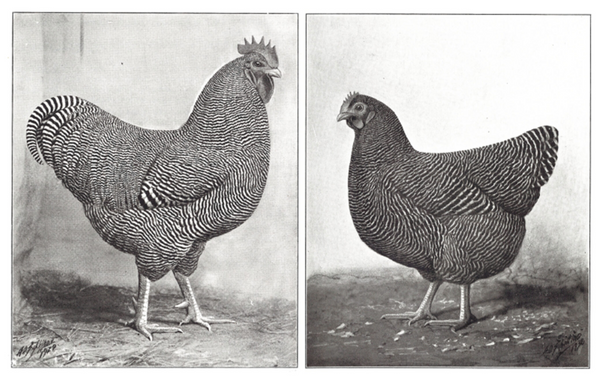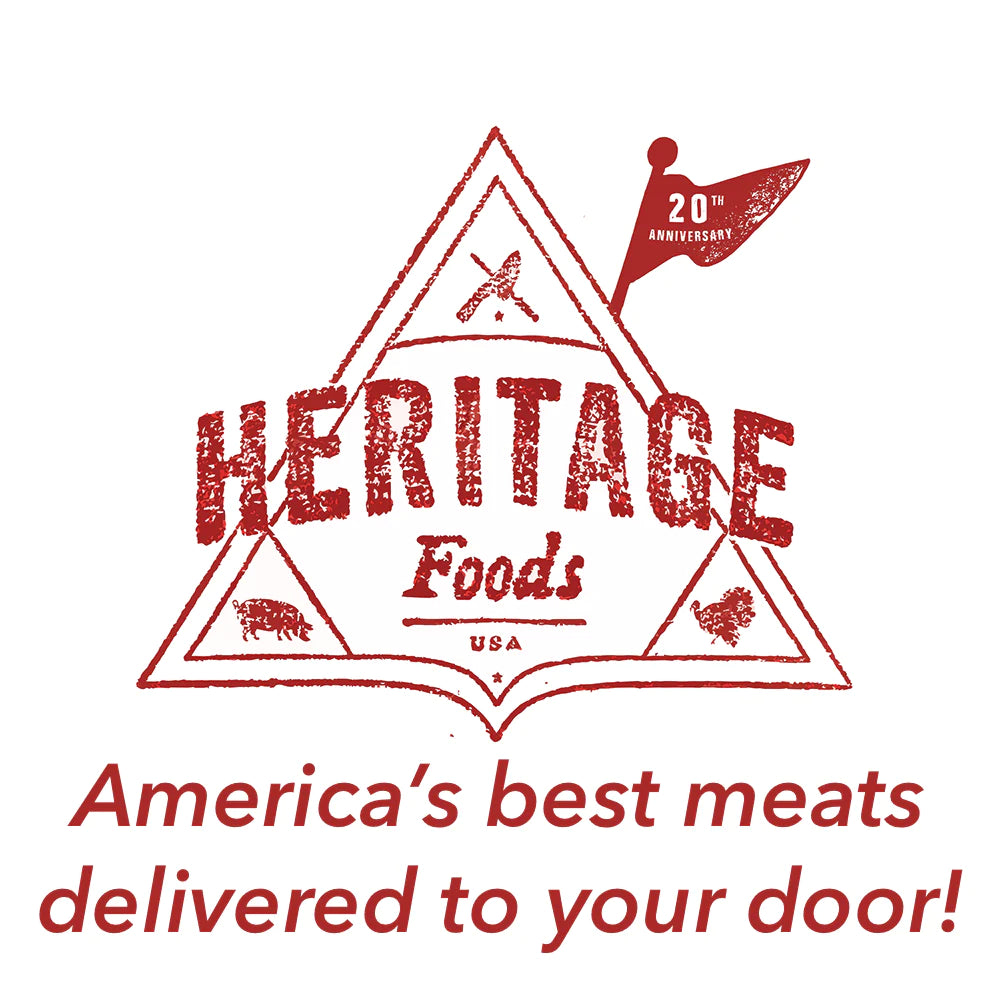
Eat An Endangered Species
“When the last individual of a race of living things breathes no more, another Heaven and another Earth must pass before such a one can be again.” — William Beebe
No one’s saying to fricassee a Komodo dragon, or cacciatore an American Bald Eagle, but you should definitely think about roasting a Gloucestershire Old Spot pig, or grilling a Tunis lamb.
I sometimes ask people what the difference is between the Red Wattle pig and the Bengali Tiger, and the answer is that there are more Bengali Tigers in the world than there are Red Wattle breeding pigs. Red Wattles are also delicious, and legal to eat.
There are dozens of varieties of chickens, ducks, geese, pigs and cows on the endangered species list as a direct consequence of industrial farming and food conglomerates. Promoting bio diversity is not on the agenda for the industrial farming complex, who has no incentive except to churn out beasts — through genetic engineering and Frankensteinlike bio-wrenching —who produce the most amount of white meat in the shortest time, while every other variety falls by the wayside. The corporate mantra is more food faster — cheap food at any cost! — until no market exists for anything else, no matter how severe the consequences or how small an investment it would take to change course.
Because these are livestock and poultry, we don’t see them in the same way as we do more exotic animals that people pay money to see in zoos. But just as there are many kinds of dogs and cats in the world, so are there many pigs, goats, sheep, and cow varieties.
It seems like laughing in the face of God to willfully crush biodiversity for the sake of over-developing one breed for profit. How haughty do you have to be to drive into extinction a noble breed that had been raised by generations of family farms, that had its own traits and taste and look and purpose — like the Red Wattle, which populated the yards of New Orleans throughout the 17th and 18th century?
We’ve already seen the food chain polluted with swine flu and bird flu and mad cow disease — how remote of a possibility do you really think it is that Thanksgiving could get canceled some year because of one ambitious germ? The Irish potato famine wouldn’t have happened if they hadn’t been reliant on just one breed of potato. If they had promoted more diversity they would have been left with plenty of crops.
Forty-five million turkeys will be sold this Thanksgiving, so industrial turkey producers who only raise one or two varieties aren’t doing so badly for themselves. But trust me when I tell you they are living in a very tenuous place. By relying solely on a single strain of the Broad Breasted White, entire flocks, and even the species itself, is one novel pathogen away from being wiped off the American dinner table. It would be like the Andromeda Strain, or Twelve Monkeys, or the Hot Zone — except for turkeys. But then, maybe you’d like to spend Thanksgiving in a museum showing your kids what a turkey used looked like, along with Pocahontas and the quaint, nearly extinct Native Americans.
Imagine that Andre the Giant’s family in the French Alps has a small herd of heirloom cattle, bred especially at that specific altitude, grazing on that gorgeous Alpine grass, and being coddled in drunken French (and occasionally Swiss). The community builds their local gastronomy around it, and a few connoisseurs come in search of it, but mostly Andre’s family sends meat to the local bistro for the few people left who have grown up enjoying this unique pleasure. But eventually the old family farm will be shut out by a system that is gamed against local heritage and skewered towards commodity. Mr. and Mrs. Andre the Giant get old and die, and there is almost no incentive for anyone to continue raising this breed of cattle. Why? Most people are happy eating whatever is put in front of them, and these cows now are going the way of the dodo bird. Gone. From the Earth. Forever.
It may be counter-intuitive — some kind of inverse Darwinism that contradicts that whole survival of the fittest thing — but that’s why it is our duty to eat an endangered species. To save them, and to preserve their unique taste on our dinner table. Breeding and slaughtering these animals is part of the responsible stewardship of the planet . And…they’re delicious!
Just to give you an idea of how great the diversity of wonderfully delicious animals is, here’s a list of non-commodity, heritage, and rare breeds.
GOATS: English, Bagot, Golden Guernsey, San Clemente, Spanish, Tennessee Fainting, Myotonic, Wooden Leg, Nigerian Dwarf, Oberhasli, Isle of Man, Irish, Scottish, Hawaiian, Arapawa, Saturna Island and Mona Island. SHEEP: Soay, Shetland, North Ronaldsay, Hebridean, Manx Loghtan, Jacob, Boreray, Castlemilk Moorit, Welsh Mountain, Black Welsh Mountain, Torddu, Torwen, Balwen, Hill Radnor, Lleyn, Portland, Dorset Horn, Wiltshire Horn, Whitefaced Woodland, Lincoln, Teeswater, Wensleydale, Leicester Longwool, Cotswold, Galway, Devon, Cornwall Longwool, White Face and Greyface Dartmoors, Ryeland, Herdwick, Southdown, Oxford Down, Dorset Down, Shropshire, Norfolk Horn, Clun Forest, Kerry Hill, Llanwenog, Navajo-Churro, Santa Cruz, Gulf Coast Native, Newfoundland Local, Hog Island, Tunis, Delaine Merino, Caribbean Hair, Boricua, Barbados Blackbelly, Virgin Island White, St. Croix, Katahdin, Karakul, Feral Hawaiian. PIGS: Tamworth, British Saddleback, Gloucestershire Old Spots, British Lop, Berkshire, Middle White, Large Black, Oxford Sandy and Black, Ossabaw Island, Guinea, Poland China, American Mulefoot, Red Wattle, Choctaw, Hereford. CATTLE: White Park, American White Park, Vaynol, Chillingham, Highland, Kerry, Dexter, English Longhorn, Ayrshire, Shetland, Red Poll, Irish Moiled, Galloway, White Galloway, Belted Galloway, British White, Devon, Milking Devon, Gloucester, Shorthorn, Beef Shorthorn, Northern Dairy Shorthorn, Whitebred Shorthorn, Lincoln Red,, Milking Shorthorn, Guernsey, Florida Cracker and Pineywoods, Texas Longhorn, Canadienne, Dutch Belt, Lineback, Randall Blue Lineback, Ankole Watusi.
